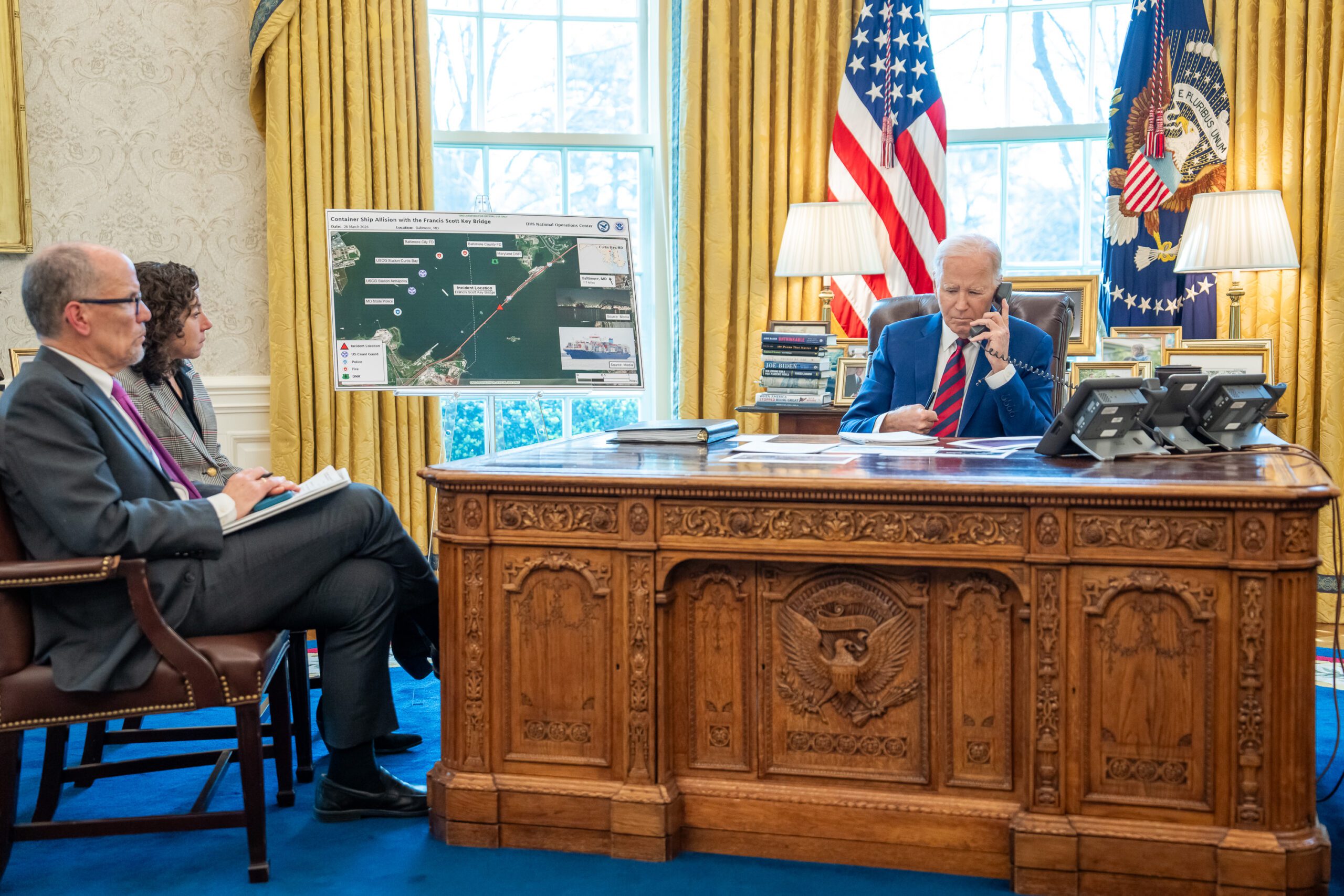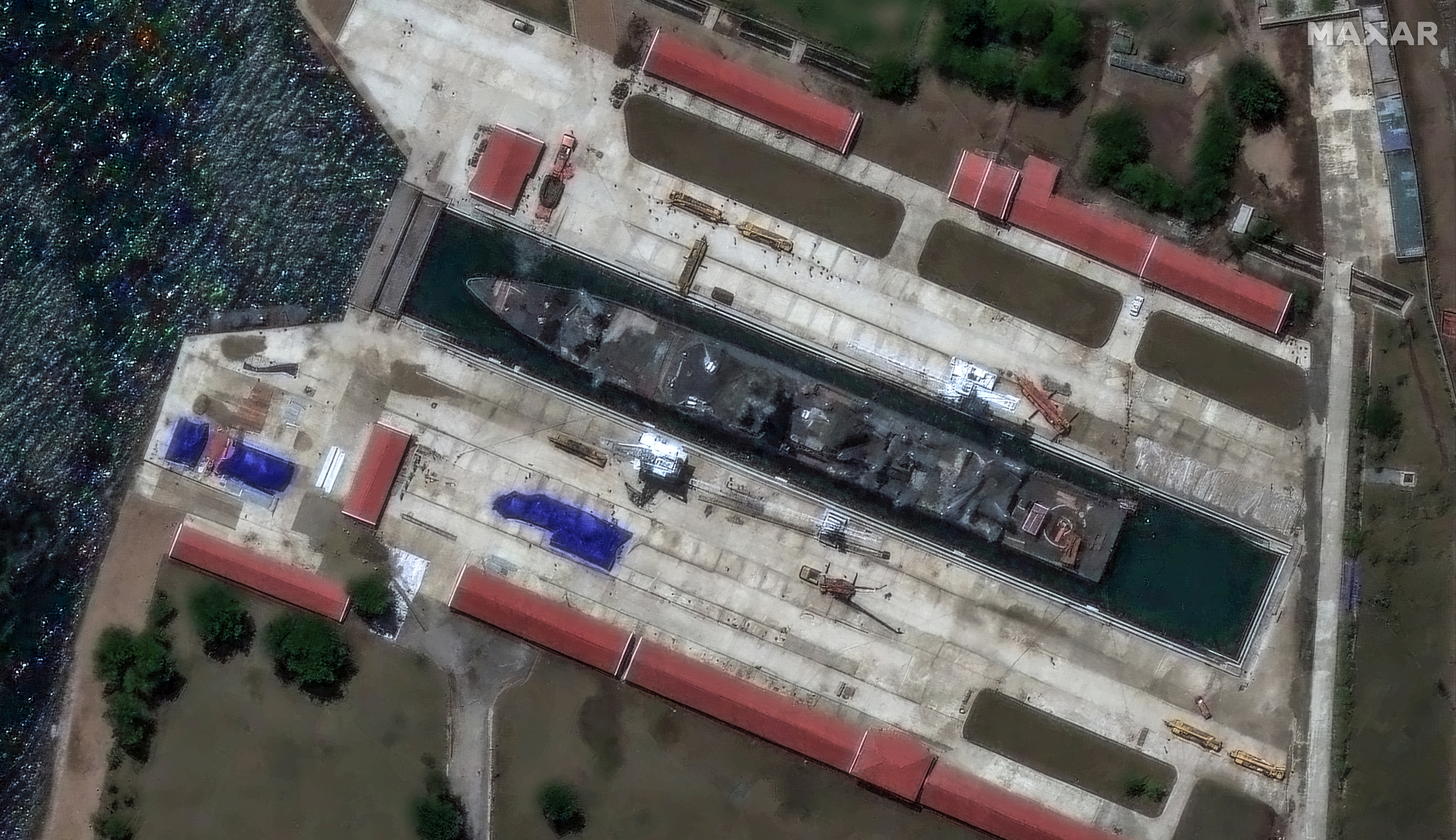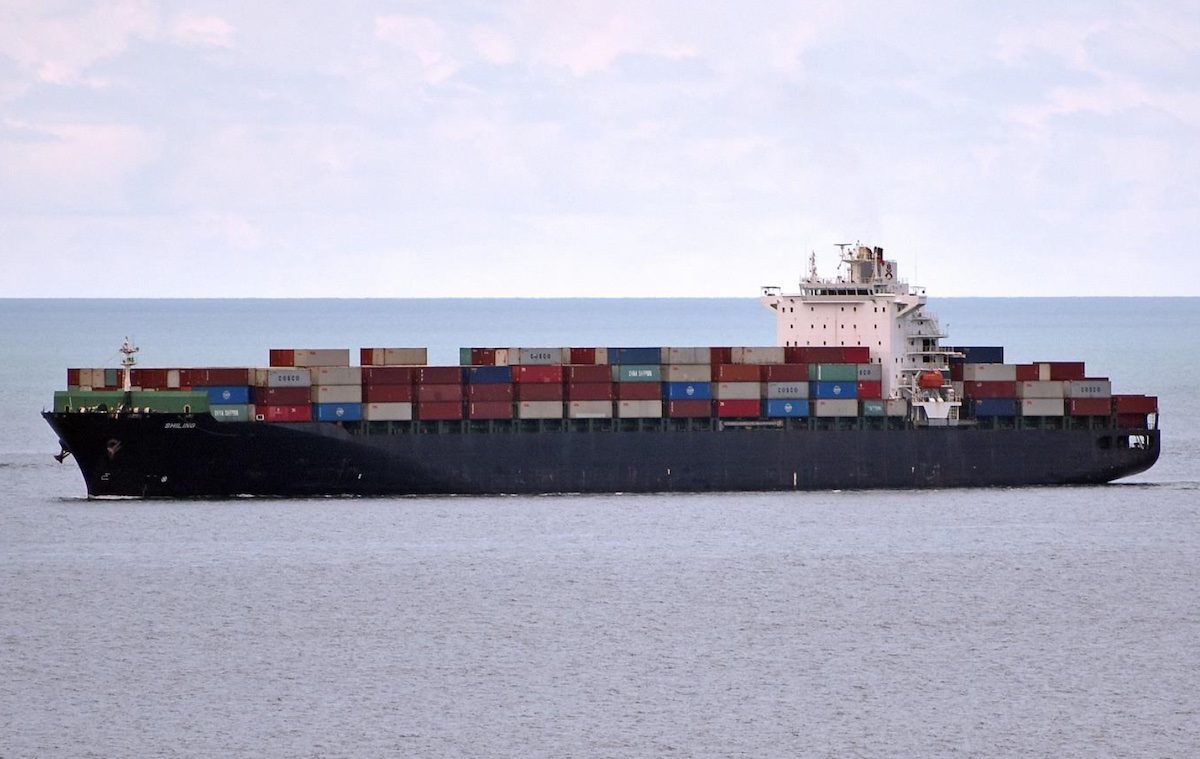by Captain John Konrad (gCaptain) The collapse of Baltimore’s Francis Scott Key Bridge this morning was a terrifying event, deeply affecting a public already struggling with the escalating visibility of shipping news. This incident follows a series of national challenges including port congestion, low water levels in the Mississippi River, delays in the Panama Canal, and US Merchant Marine ships being targeted in the Red Sea.
During a midday address, President Joe Biden held a press conference to address these concerns, essentially ruling out terrorism or other foul play.
“Everything indicates this was a terrible accident – at this time we have no other indication,” Biden said during a televised lunchtime address to the nation.
In his speech, Biden directed Secretary of Transportation Pete Buttigieg to respond immediately. He pledged the power of the federal government to repair what was broken. He assured that the reconstruction of the 1.9-mile span over the Patapsco River would be undertaken without hesitation. However, questions still lingered.
After the speech, a reporter questioned the financial liability of the foreign shipping companies that own, operate, and chartered the Dali. In response, Biden declared, “We’re not going to wait for that to happen.” His statement signifies a commitment to taking action rather than waiting for arbitration to play out in court.
The maritime experts interviewed today expressed skepticism that repairs will be swift and straightforward. Due to a lack of salvage equipment in the region and the Navy’s reduction of its salvage fleet, there’s a scarcity of government ships and equipment to assist commercial operations. Although the Army could build temporary piers and ferry passengers across the river, it also has divested most of its watercraft equipment. Much of its remaining Joint Logistics Over The Shore equipment has been dispatched to build piers in Gaza. Meanwhile, the Army Corps of Engineers is struggling to find enough American dredges and construction vessels to complete existing projects.
Also Read: UN Secretary-General Dismisses Gaza Pier Plan
Experts also question how much Peter Buttigieg can accomplish considering this US Maritime Administration – at less than 1/40th the size of its sister agency the Federal Aviation Administration – is a shell of its former self with a tiny budget and a poor track record of success. The US Coast Guard too is struggling with serious budget cuts and a scandal of its own. This year it has already announced serious cuts to include pulling ten cutters from service, transfer five tugs to seasonal activation, and shutter 29 boat stations.
Also Read: US Maritime Crisis: Uncovering The Ghost Admiral Steering The US Government’s Most Secretive Agency
The collapse had far-reaching effects beyond the immediate horror and promises of repair, significantly impacting Baltimore’s economy. The Port of Baltimore, a crucial hub in global trade and the annual docking site for approximately 850,000 motor vehicles, now faces a standstill in its activities. Biden, always attentive to the human element, emphasized the need to restore not only the flow of traffic but also the livelihoods of the 15,000 workers whose daily lives are tied to the port’s operations. The question is how much can the federal government do after decades of underinvestment in the construction, salvage and support ships needed to solve problems like this?
Marine salvage teams are being dispatched to Baltimore as the US Army Corps of Engineers prepares to assess the damage but experts gCaptain spoke with anticipate several weeks of logistical challenges before any real progress is made. Nevertheless, the President’s assurance to Baltimore and Maryland officials embodies the determination frequently observed during times of national resolve. “We’re not leaving until this job is done,” stated Biden, his words mirroring the collective spirit of recovery and resilience in times of adversity.
In the tangled aftermath, with lingering questions, the story of the bridge and the Dali emerges. It’s a narrative of human vulnerability, increased uncertainty in the maritime sphere, and diminished military capabilities that complicate the execution of a President’s promise. Conversely, as demonstrated during the COVID-induced port congestion crisis, commercial interests often find solutions to even the most complex maritime issues.
Then there is the question of what other bridges around the nation are vulnerable to a collision like this? Will those bridges be immediatly be upgraded with dolphin’s and structures to prevent collapes if a ship hits them? Seems unlikely.

 Join The Club
Join The Club











